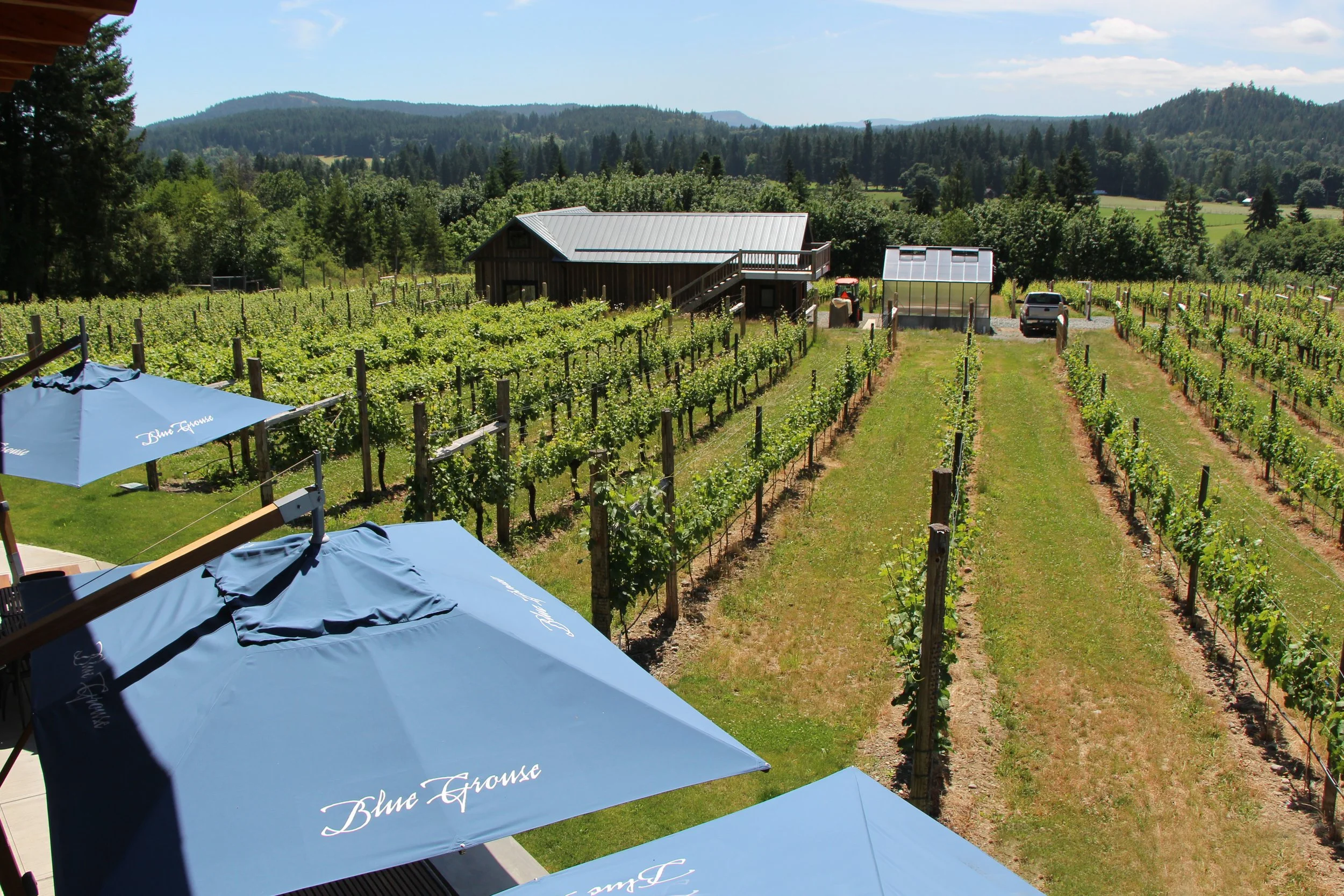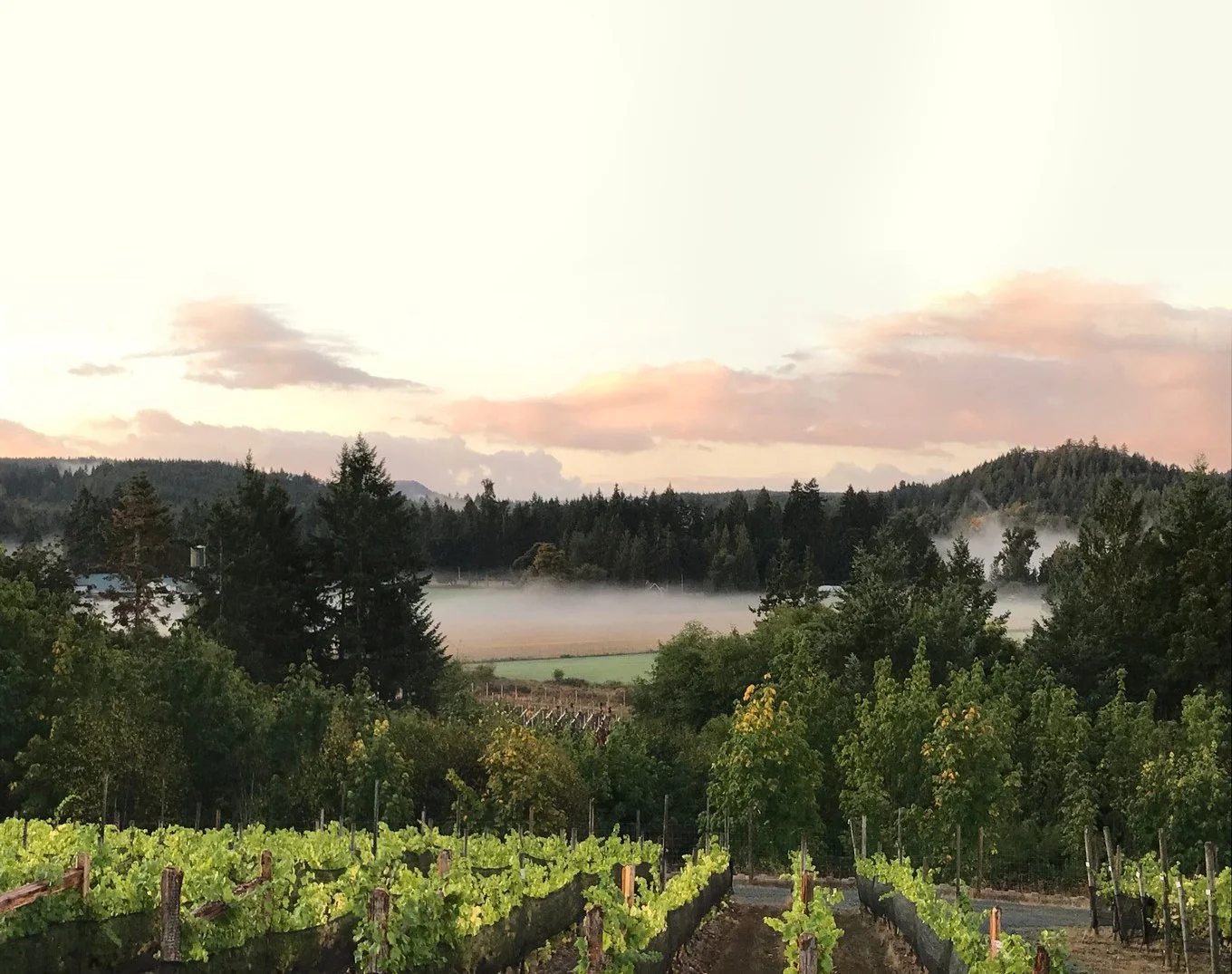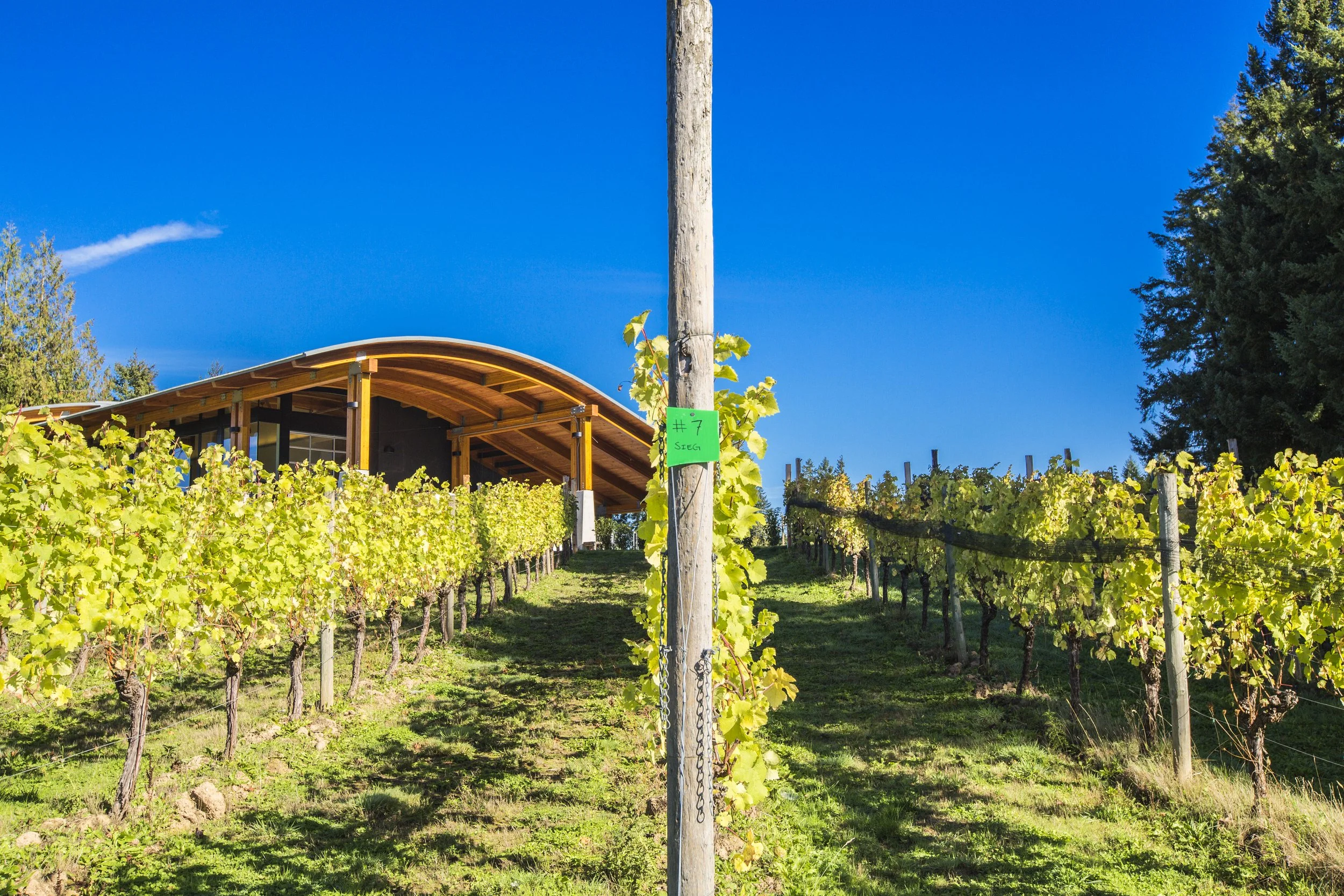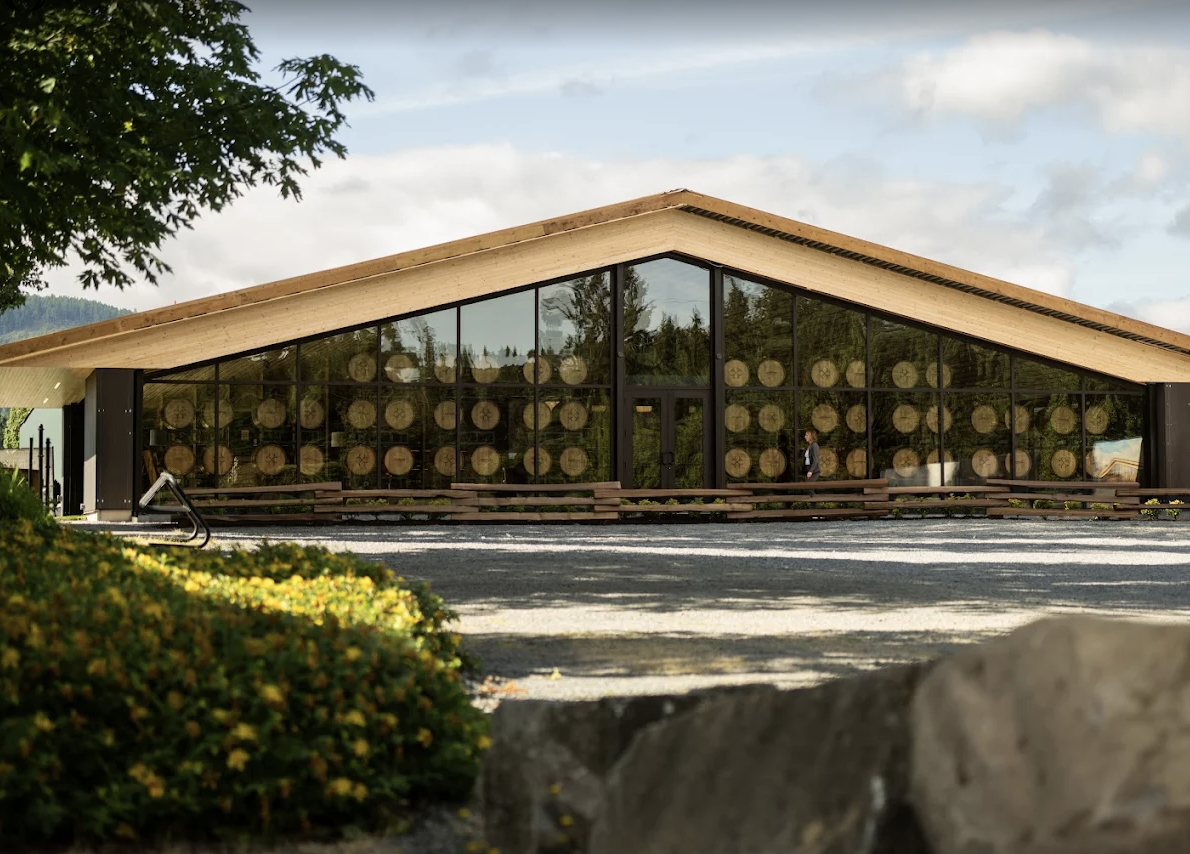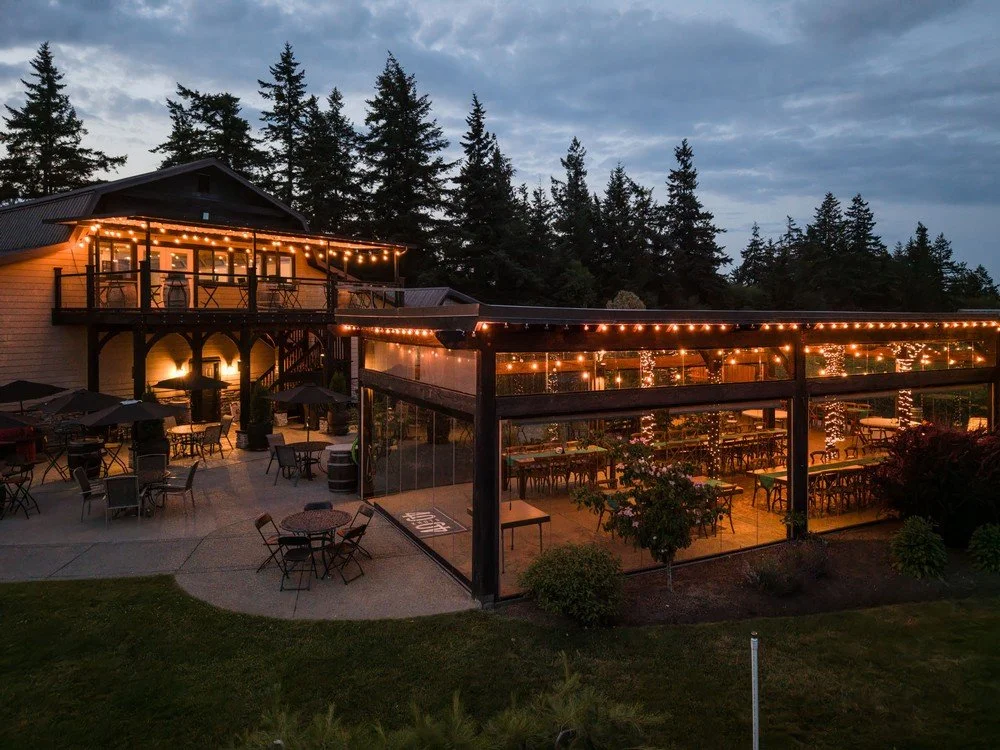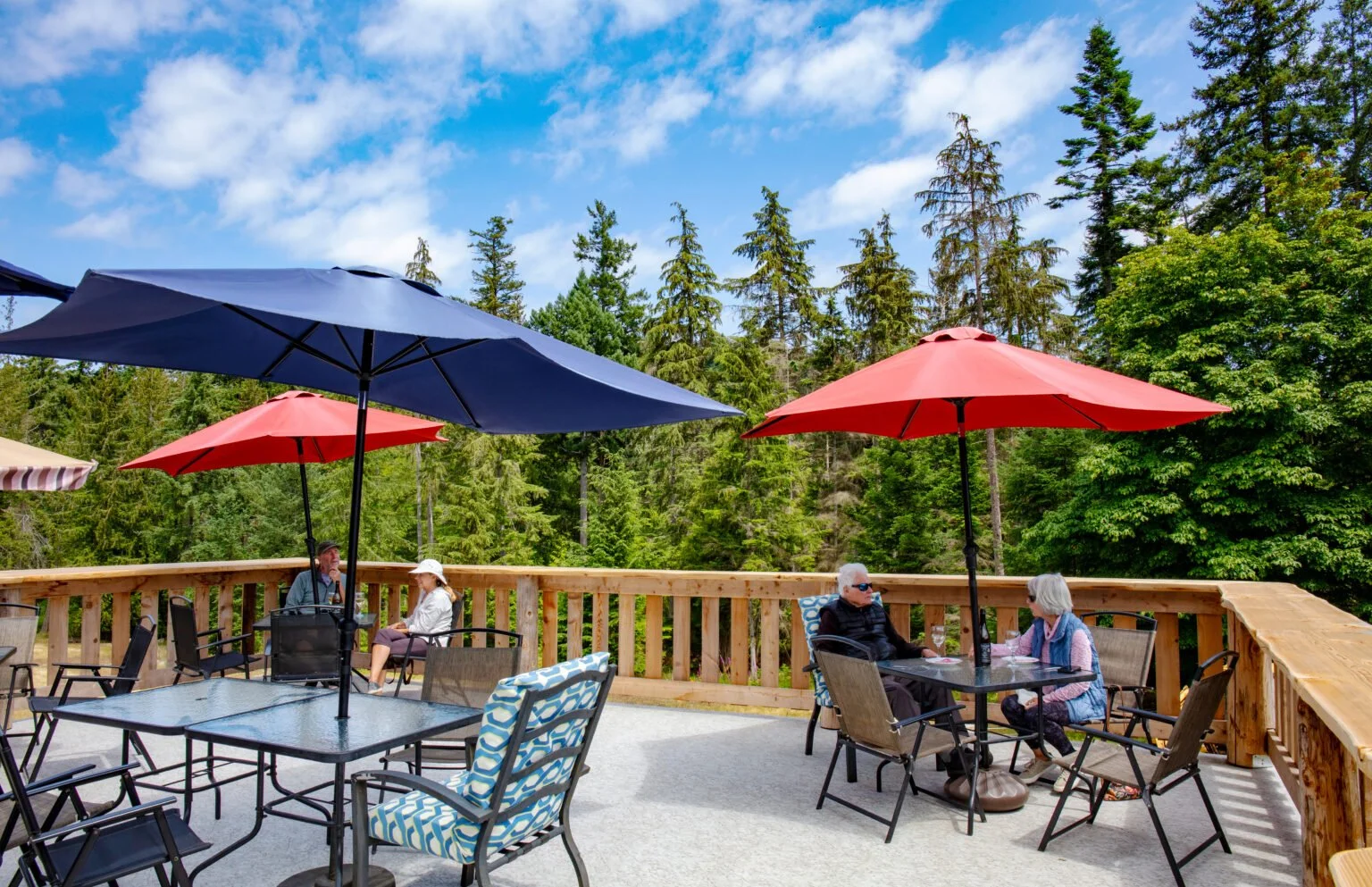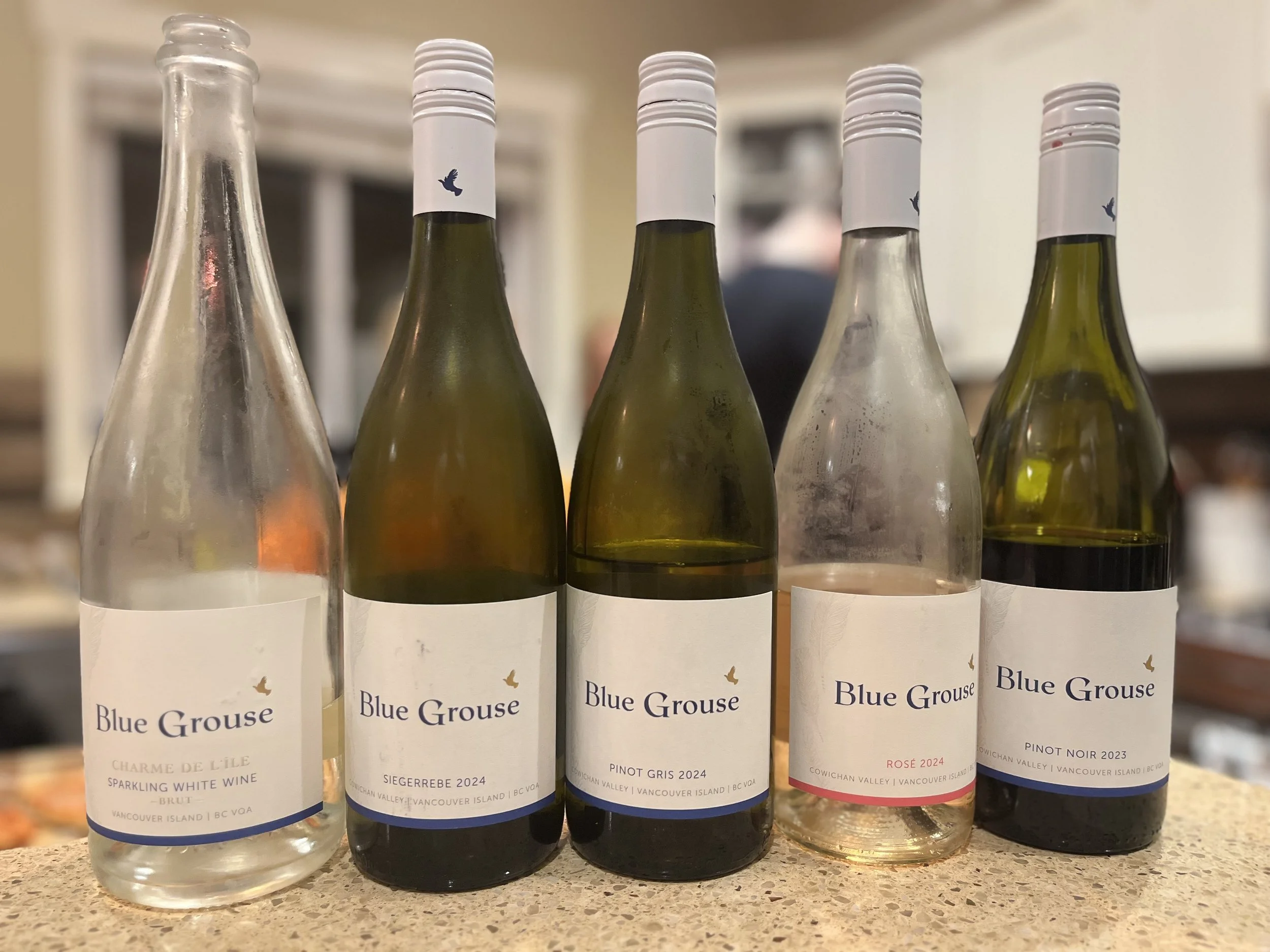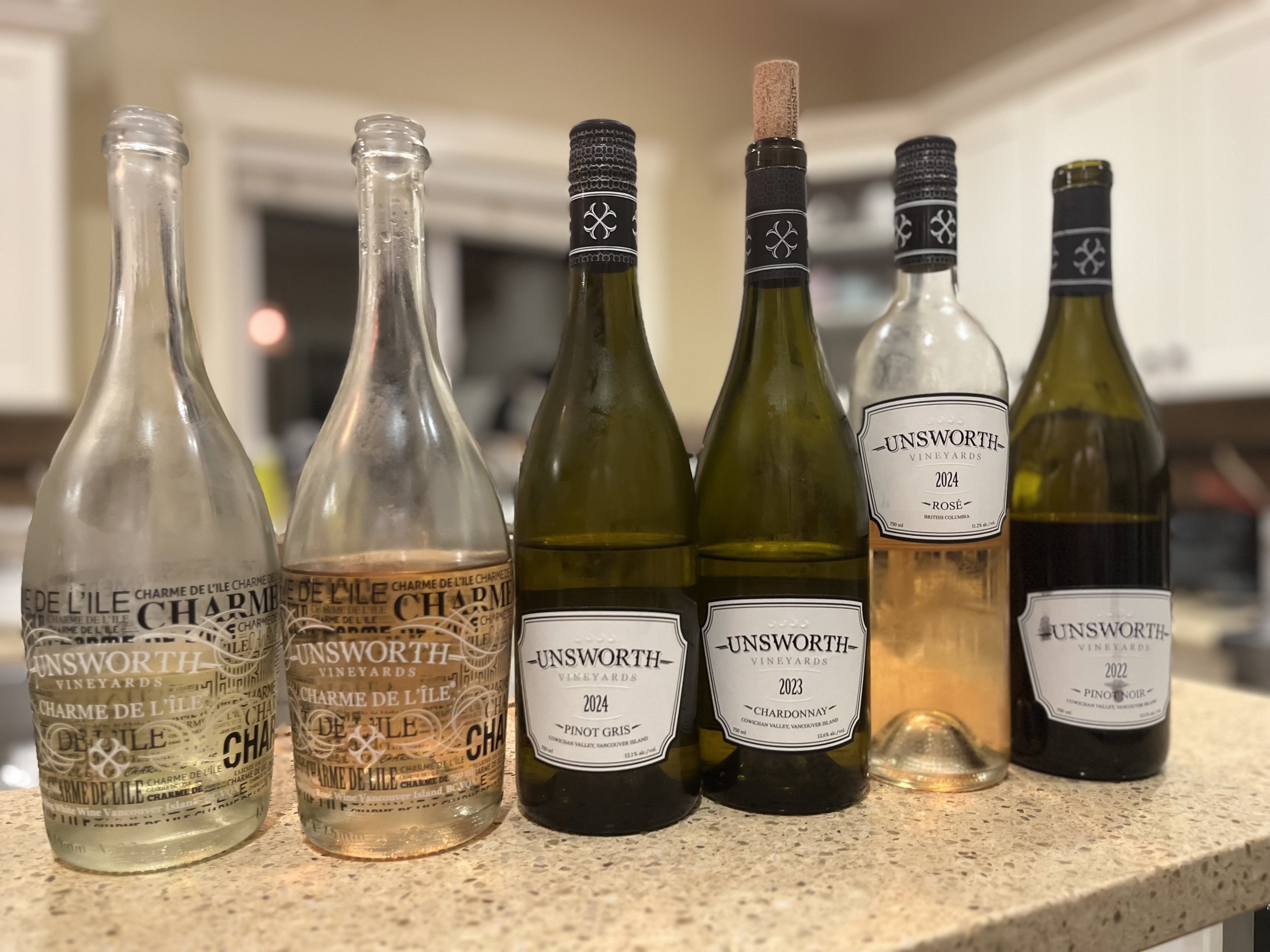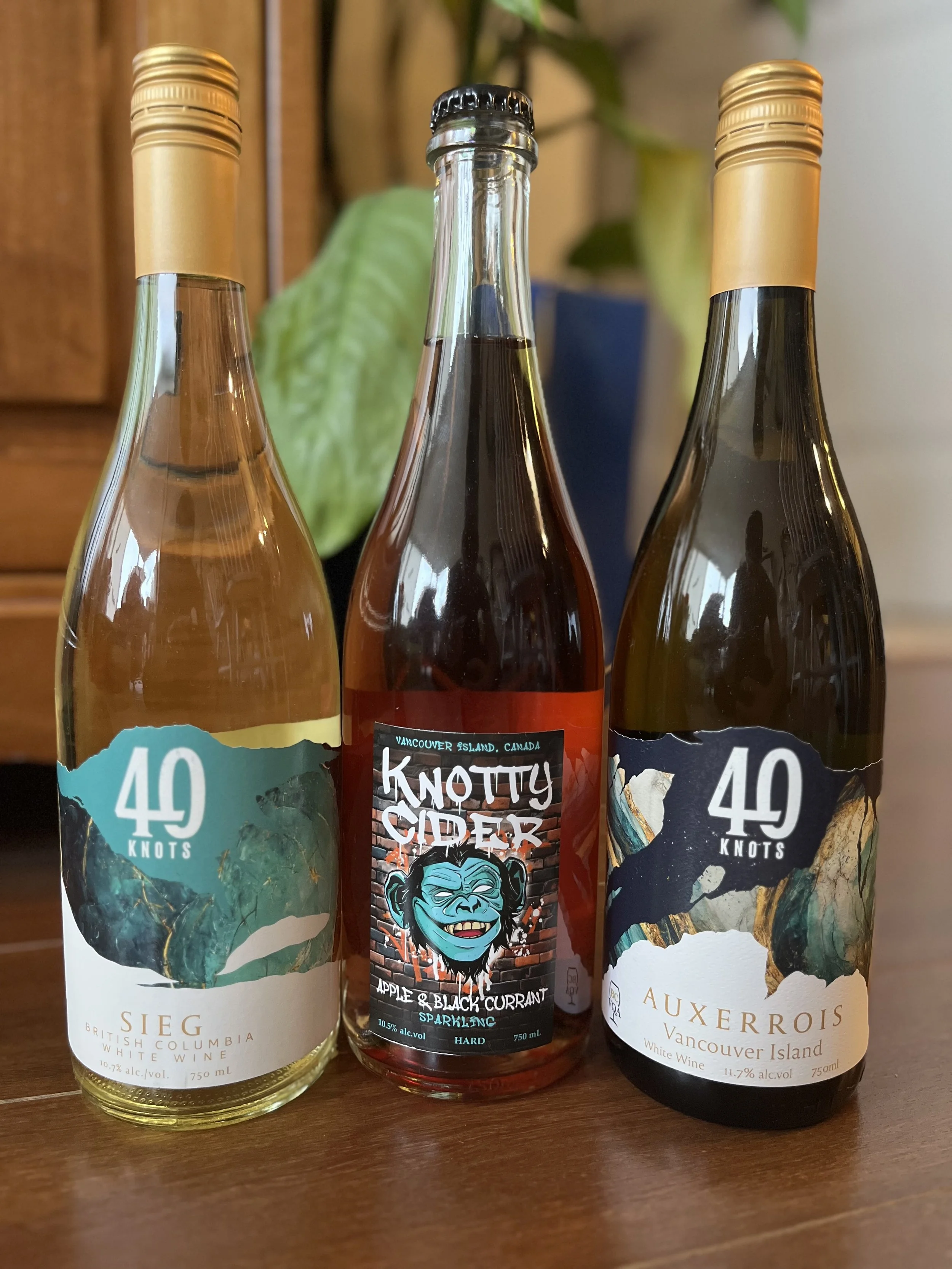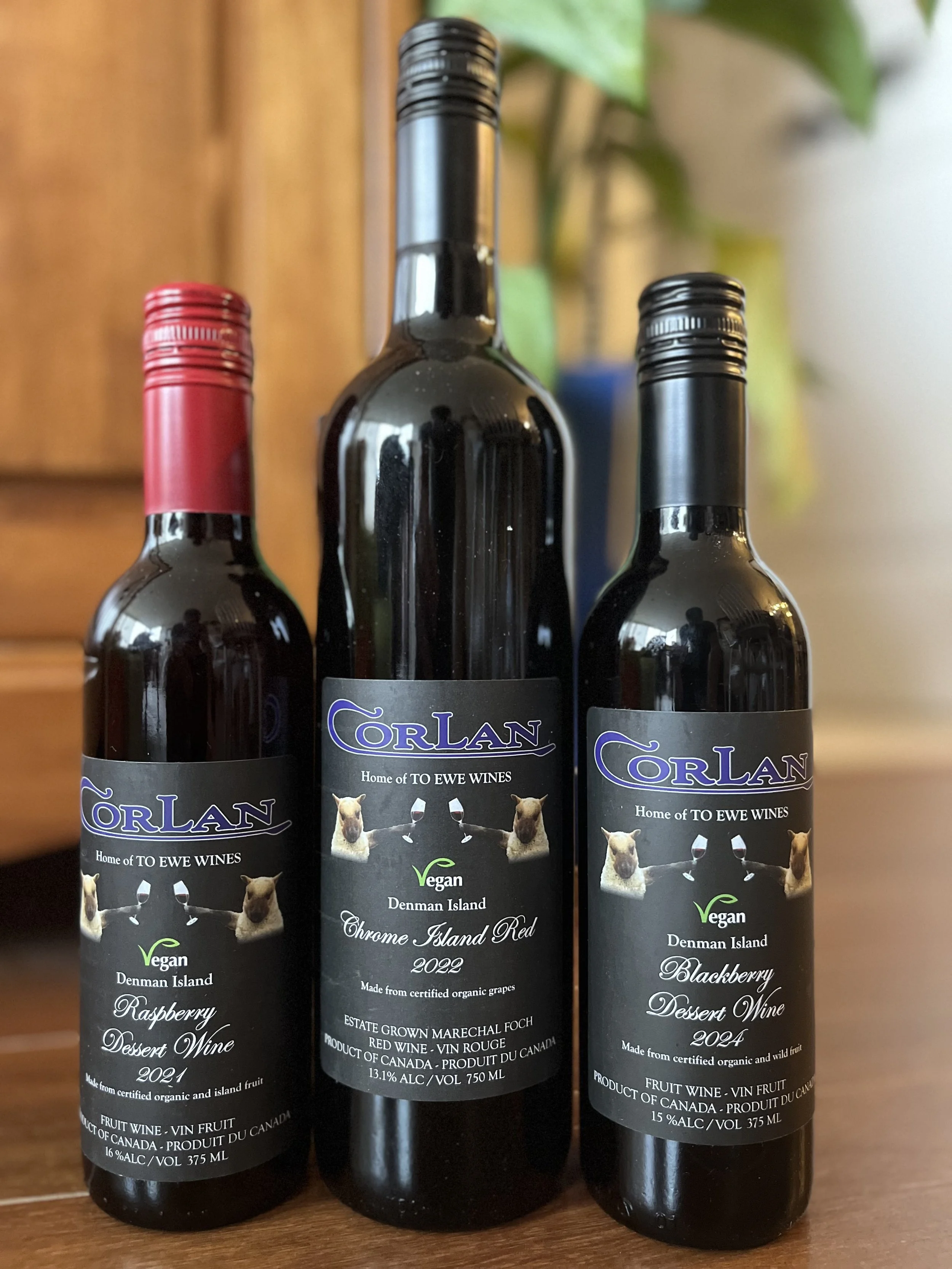The New Frontier of BC Wine: Discover Vancouver Island’s Signature Sips
Photo credit: Wines of British Columbia
BC wine is still the new kid on the block. But things change so quickly, that it’s easy to miss when big things are happening - like the current awakening that’s dawning on Vancouver Island and coastal BC.
“They make wine on the Island?”
Do they ever.
Millions of visitors ferry to the islands each year, allured by innumerous coastal treasures, old growth temperate rain forests, a laid-back mentality connected to the environment, and perhaps the prospect of marine mammal sightings. Food tourism is mainstream now too, and it’s only natural what follows.
Quietly, patiently, the wheels have been turning. It’s been happening right under our noses - the tide has risen one vintage at a time, foundations have been laid, and the age of Island Wine has come.
As I’ve written previously Canada is starting to get the international recognition it deserves in the wine industry. At the 2025 Decanter World Wine Awards, 6 medals were awarded to island wines. Vancouver Island also routinely claims awards for Pinot Noir, Chardonnay, Pinot Gris, and others in Canadian competitions.
Vancouver Island’s wine story goes back to the early 20th century with fruit wine, before grape vines appeared. It’s a tradition that still carries on today, but it was a 1980’s provincial government research initiative (the ‘Duncan Project’) that brought wine grapes to the island and laid the foundation for today’s exciting industry.
Photo credit: Wines of British Columbia
Over 40 wineries now speckle Vancouver Island and the Gulf Islands. Together, they total only about 430 acres (less than a tenth of what’s planted in Oliver, for example). They generally focus on Pinot Noir, aromatic Germanic crosses, and hybrids that can sustain through cool and wet conditions. A mountainous spine along Vancouver Island’s axis shelters the east side from chilly winds and rains of the open Pacific, contributing to the only maritime Mediterranean climatic zone in Canada. Burgundian cultivars can ripen here while maintaining acidity that makes wines fresh, energetic, and excellent with food. With a warming climate, even Merlot, Malbec, and Cab Sauv have been planted.
You might think that climate would be a major limiting factor for the success of wine making on the islands. In fact, it’s a major advantage compared to the interior. The ocean’s moderating influence means that severe frost and freeze events are not a concern, nor does the annual threat of forest fires and smoke loom large. Long, relatively warm and dry summer days and cool nights provide more than adequate conditions for grape growing. The prerequisites are there for serious ageability, and early reports are looking promising.
It’s important to note that because of its unique climate, Vancouver Island vintages are not the same as on the mainland. They are an independent macrocosm. For example, while many interior wineries experienced reduced yields in 2023 due to cold damage, island wineries reported an excellent year of warm, dry conditions and a bountiful harvest. In 2024, coastal regions had a cooler vintage with average yields while the rest of BC had little to no crop, forcing many to look elsewhere for grapes.
It’s this maritime climate that plays the most significant role in shaping the wines produced in this region, with soil and other vineyard factors playing minor but still important roles. Geologic history is complex, leaving much diversity below the ground. Well-drained soils, careful site selection with appropriate aspect, and canopy management to expose grapes to drying air currents are key to making great wines here just as anywhere.
These folks doing the work on the land and in the cellars are not just your crunchy island hippies - they are pioneers, innovators, and professionals, practicing regenerative and sustainable farming in a big way, and shaping the industry. Their dedication and stewardship over decades will be a legacy for future generations. Shall we at least take notice?
I am highlighting a few important regions and producers of BC coastal wine. Samples were provided by the wineries.
Vancouver Island - Cowichan Valley
It seems all eyes are on the Cowichan Valley at the moment. In 2020, it was officially recognized as the first sub-Geographical Indication outside the Okanagan. Certainly, major investment by Jackson Family Wines into well-established wineries here has also helped to boost the reputation of the area and Canada as a whole. Although corporate-backed, these producers are still independently managed and fiercely devoted to a Vancouver Island identity, and wines that express their origin.
Cowichan is the heart of the island’s wine scene. The place name is translated from a Hul’q’umi’num term meaning ‘to warm one’s back in the sun.’ The grapevines planted here enjoy the warmest average annual temperature in the country.
Photo Credit: Wines of BC (Derek Ford)
Background
Vines were planted on the property in the 80’s during the Duncan Project, and Blue Grouse Winery received its license in 1992. Thanks to this heritage, they have some of the oldest Pinot Gris vines in BC. Jackson Family Wines purchased the estate in 2022, and brought in winemaker Stacy Hornemann in 2024, who got straight to work translating Cowichan Valley terroir into world-class wine. She believes all the fundamentals are there, it’s now just a matter of identifying the premium sites, and which grape types are performing best.
Signature Wines
Pinot Noir, Chardonnay, and sparkling wines (particularly the tank method Charme de l’île) are their bread and butter, but the Pinot Gris is quite special as well. Other whites include Germanic crosses like Bacchus, Siegerrebe, and Ortega. Stacy’s philosophy: Make wines that are, “special, and expressive of the region.” When it comes to oak, “A little goes a long way.”
Future Direction
Stacy is really excited about the potential of island Ortega and is having fun exploring more sophisticated expressions of this grape. She is also moving more towards fermentations in barrel and with native yeasts, allowing her to build texture that doesn’t come from sugar. Coming next year, watch for a traditional method Blanc de Blanc release from the 2021 vintage. Eventually, Stacy hopes to take this to 7 years en tirage.
Photo credit: Unsworth Vineyards
Background
Founded in 2009 by Tim and Colleen Turyk, the business was purchased by members of the Jackson family in 2020. The Californians have invested in more acreage and new winemaking facilities, but the Turyk family still runs operations. Unsworth has been instrumental in drawing attention to island wines, winning awards domestically and internationally. Chris Turyk, Director of Sales and Marketing and a Master of Wine candidate, attributes their success to a “commitment to vineyard-first decisions, small-lot attention, and sense of connection.”
Signature Wines
Pinot Noir is the star here, along with Chardonnay, Pinot Gris, Gamay, and Rosé. The whites lean more into hybrids, and their sparkling program includes Charme de l’Île as well as traditional method.
Future Direction
Unsworth’s production is about to expand in a big way - but they will never lose their core ethos of “Cowichan sensibility,” as Chris puts it. Expect to see evolution in their sparkling program, experimentation with vineyard sites and microblocks, fermentation vessels, and advancements in regenerative viticulture. Investments in hospitality and consumer education will bolster engagement and connection between people and the land.
Vancouver Island - Comox Peninsula
An hour and a half up island from Nanaimo, the climate here is actually even warmer and drier than Cowichan Valley. Right next to the Salish Sea, the air is salty and moist but precipitation in summer is seldom. Iron-rich glacial till soils sit on top of water-retaining marine deposits, meaning dry farming can be accomplished here. An application for the area to be designated a new sub-GI for Vancouver Island (‘Comox Coastal’) made it through to approval, however one of the two wineries within the boundaries voted not to adopt.
Photo credit: 40 Knots Vineyard & Estate Winery
40 Knots Vineyard & Estate Winery
Background
The winery is owned and operated by husband and wife team Layne Craig (winemaker) and Brenda Hetman-Craig (business and marketing). Purchased from the previous owner in 2014, they saw the potential for Pinot Noir and went all-in on what they call ‘clean farming.’ Having received initial mentorship and consultation from Matt Dumayne (OK Crush Pad) and Michael Bartier (Bartier Bros), Layne is gradually incorporating more use of terra cotta amphorae in the cellar, which he calls a ‘microphone’ for the fruit and site. No irrigation is needed, and applications of liquified kelp and mulched cuttings avoid the need for fertilizer.
Signature Wines
Pinot Noir, Chardonnay, and Germanic crosses are the most common plantings here. Layne’s approach: “Make ultra premium wines at low intervention.” They also started making use of their orchard apples in 2025, making French-style bottle-fermented ciders with urban marketing directed at a younger demographic.
Future Direction
Layne and Brenda continue to double down on their minimalist approach, helping the vines only as needed through land-conscious methods and sustainable practices. Layne will continue to play with amphorae, and strives to always stay relevant. They have a loyal following locally and a wine club, but would love more people to know about them. The winery is currently for sale as Brenda and Layne look to retire, so don’t wait to seek out their wines.
Gulf Islands - Denman Island
Just off the coast from Comox lies 51 km2 Denman Island, home to artisans, creative spirits, four provincial parks, and one organic winery. The island is reached via the Buckley Bay ferry, mid-Vancouver Island.
Photo credit: Corlan Vineyard and Farm
Backgound
Patricia and Selwyn Jones came to Denman in 2006, cleared the land, planted vines in 2008, and received their license in 2014. Their certified organic 5-acre plot is dry farmed, and the wines are unfiltered and receive no sulfites. Locals volunteer to help with the harvest, and Clun Forest sheep mow the growth between the rows. Can it get more Gulf Island than that? Yes it can - their entire annual production (approximately 500 cases) is sold directly to consumers on site or through weekly farmer’s markets. Come on.
Signature Wines
Hybrids and Germanic crosses are the most reliable in this marginal vine growing area. Pat and Selwyn grow Marechal Foch, Leon Millot, Ortega, and Siegerrebe. They also make raspberry and blackberry dessert wines. Every single one of their wines has won medals in international competitions. They perform particularly well at Wine Systems AG in Germany, a top awards body for organic wines. And yet, prices remain around $20 per bottle.
Future Direction
A former silviculturist, Selwyn loves to grow things and is improving pruning methods every year. Now that the vines are established and producing well, Pat and Selwyn are experimenting with blending, always dedicated to making the best product. Starting in 2026, they will also be a BC Wine Passport stop!
Final words
All the producers featured here have the same message to share - come visit us! They all offer an experience far more than just really good wine. Be enamoured by their hospitality, connection to the land and community, and take in island views and sea air while you sip at your own pace.
There is much more to discover than I’ve featured here. Consider an island-hopping multi-day trip for your next wine adventure, and you’ll be amazed at what there is to be found. Wines of BC has a suggested itinerary here
The time has come for Vancouver Island and Gulf Island wines. Set your course for this emerging world. And don’t worry, you’re not too late - you’re just on island time.
Continue reading below for 21 island tasting notes!
Tasting notes
Blue Grouse Charme de l’Ile
A non-vintage Charmat-method sparkling wine of Schönburger, Müller Thurgau, Bacchus, Pinot Gris, and Chardonnay. Intensely tropical and explosively fruity, the personality is as bubbly as the wine. Star fruit, peaches, lychee, mango, and green plum are misted by stony sea spray. A fine mousse and juicy texture with bright acidity are capped by a fruity, dry finish. So approachable and ready to be popped with chips and pico de gallo.
Blue Grouse 2024 Siegerrebe
Another wine that makes the case for Germanic crosses in our coastal regions. Even in a cooler year, this wine maintains its gregarious profile of pineapple, lychee, citrus, and white blossoms. Fermentation and short aging in neutral oak with lees contact brings a downy quality and rounded texture for a very juicy and pleasant, refreshing, dry white.
Blue Grouse 2024 Pinot Gris
This is now a signature island Pinot Gris. Vineyard lots are fermented and aged separately, some in concrete and some in neutral oak. There is some malolactic conversion as well, making this a pretty sophisticated but still very approachable Pinot Gris. Peach, pear, mirabelle, and white blossoms on the nose are supported with a soft creaminess. Great texture and balance from transparent winemaking decisions. Rounded, refined, and relaxed.
Blue Grouse 2024 Rosé
Blending Pinot Noir, Gamay, Pinot Gris, and Chardonnay, this is a very Côte de Provence rosé according to all my relevant senses. Delicate tart strawberry, subtle cream, cranberry, and rosehip aromas, plenty of poolside acidity, lighter bodied, and great for fresh foods, especially goats cheese. Consider this wine a spritz of citrus with your meal. All varieties were vinified separately in a combination of stainless, neutral oak, and concrete.
Blue Grouse 2023 Pinot Noir
If you want to understand the romantic nuance of Pinot Noir, try this bottling. The special spark of island Pinot is captured, with candied cherries, rosehip, and cranberry, balanced by discrete secondary and tertiary flashes of spice, earth, rooibos tea, and coffee. It’s ripe but delicate, fresh, and effortless. Ready to drink now but should continue to develop beautifully.
Unsworth Charme de l’Ile (white)
Unsworth’s non-vintage Charmat sparkling wine combines Sauvignette, Pinot Gris, and Pinot Noir, with a firm stylistic turn towards traditional method. Leesy citrus, bruised apple, pear, and dried peel give a concentrated and oxidative profile, with a palate that is just off dry (6.5 g/L) with balanced acidity. The finish is driven mostly by sweet fruit and a touch of salt. Champagne on a Prosecco budget.
Unsworth Charme de l’Ile (rosé)
A pale blush Charmat sparkler made from Pinot Noir. It’s Prosecco method but all Champagne style, with pronounced autolytic and Blanc de Noir character. Fresh red berries, dried citrus peel, cooked tart apple, and candied cherry open to a dry and bready palate with tangy citrus zest and impressive poise. Fresh, vibrant island personality.
Unsworth 2024 Pinot Gris (Silver, National Wine Awards of Canada)
The Unsworth Pinot Gris is a Cowichan Valley expression, whole cluster pressed and fermented in 90% stainless, 10% neutral oak, with 4 months on lees. Despite this treatment, the wine is characterized by elevated, green apple acidity and subtle fruit - crunchy pear and green plum, with white flower accents and a buttery undertone. Crisp and snappy.
Unsworth 2023 Chardonnay (Gold, National Wine Awards of Canada)
This is where Vancouver Island really shines. The world is steering towards a certain style of Chardonnay that just happens to be like what Cowichan Valley can produce. Whole cluster pressed, fermented in French oak (12% new), followed by 15 months aging in the same barrels. Aromas of lemon, pear, and blossom are balanced by fresh dill, spice, butter, and lightly toasted nuts. A chef’s pantry of ingredients integrated with five star precision. At 12.4% alcohol this Chardonnay is as fresh and bright as can be.
Unsworth 2024 Rosé
A stainless-steel fermented 100% Pinot Noir rosé with an uptick in concentration. It’s a citrus-spiked cranberry, raspberry, and rosehip flourish carrying bright acidity and finishing dry. Sophisticated yet very drinkable, this is an exquisite rosé by global standards. Winemaker Dan Wright has it dialled in.
Unsworth 2022 Pinot Noir (Silver, National Wine Awards of Canada)
The real star of Unsworth’s Cowichan Valley portfolio is this elegant, gastronomic Pinot with Vancouver Island identity. Clones 115, 667, 777, and 828 are whole-berry fermented in stainless with 15 months aging in French oak (5% new). The nose is nuanced and complex with dried cranberry, a little cherry, rosehip, earth, dried leaves, and spice, for a distinctly savoury character. The structural precision really stands out, fine tannins and layered flavours echoing through an epicurean, mouthwatering finish.
40 Knots 2022 Pinot Noir (Silver, Pacific Rim Wine Competition)
This Comox Pinot Noir (100% Clone 777) is hand destemmed, so no crushing. Daily punch downs increase extraction, with fermentation being half native and half inoculated. The wine is aged in amphorae. What’s not to like? Plenty of cranberry, pomegranate, cherry vinaigrette, and strawberry pie, enhanced with some woody spice and red plum. Elevated acidity and fine tannins provide nice tension and excellent mouthfeel. The reverberations of flavour and structure never stray from approachability. Yum.
40 Knots 2023 Pinot Noir Classic
Championing sustainability, the harvesting, destemming, labeling, and wax sealing are all done by hand, and that’s part of what you’re paying for here ($75). The fruit (clones 777 and 115) is cold soaked and fermented in bins, followed by maturation in either amphorae or stainless steel with oak chips and blocks. Both treatments are then blended. Soft, rounded aromas of stewed plum and strawberry turnover, some baking spices, and forest floor are punctuated by a nice bright and elevating cherry note. This is light, lean and fresh (just 12%), with a tart red fruit finish and tannins soft and thin like satin floss. Seamless and finessed.
40 Knots 2022 Siegerrebe
Ripe, tropical fruit is why these Germanic crosses are such a good idea in a cool coastal climate. 2 months on lees add the slightest soft touch, allowing the fruit to sing. Intense guava, star fruit, grapefruit rind, passion fruit, currant leaf, and a field of wildflowers make for more than a simple white. Is Comox the Marlborough of BC? Light in body and high in acid with a dry, chalky texture, this is a white wine for white wine lovers and destined for ceviche and salted chips.
40 Knots 2023 Auxerrois
A rare varietal, sibling to Chardonnay. Grapes were destemmed, pressed, fermented cool in stainless, and kept on lees with weekly stirring for 8 months. Very pale in colour but concentrated in aroma and flavour, this wine smells like walking under a laden lemon tree. It’s very citrus forward with some dried lemon peel too, as well as pear, green apple, water cracker, and blossom notes. The palate is surprisingly juicy and bright, driven by a rogue wave of island acidity. The tight, citrus-green apple finish seems to conjure a Burgundian elegance. Ideal for enjoying with food, and it’s screaming for Kusshi oysters.
40 Knots Knotty Cider
Made from local apples and black currants, this is a traditional method off-dry cider, and so much better than your average commercial type. More than just a one dimensional fruit profile, there are aromas of rhubarb, blood orange syrup, potpourri, and cherry clafoutis. Refreshingly sweet and finely moussed, you may want to share as it’s a 750ml bottle at 10.5%. If feeling knotty, you’ll have no problem finishing it yourself.
Corlan Vineyard and Farm 2022 Sandy Island White (Silver, Wine Systems AG - Germany)
Organic, Denman Island Ortega with 8% Siegerrebe - two aromatic German whites much more common in the Fraser Valley and island vineyards than elsewhere in BC. The wine is unfiltered and no sulphites are added. Pure and voluptuous fruits reverberate throughout - papaya, pineapple, guava, dried apricot, with orchard blossoms and a stroke of musk. Dry, light, and textural on the palate, the finish tapers into apple skin and citrus. There’s a tropical breeze coming from the Gulf Islands…
Corlan Vineyard and Farm 2023 Chrome Island Red (Gold, Wine Systems AG)
This deep ruby wine is made of Maréchal Foch with 12% Leon Millot, both hardy hybrids well suited to the wet coast. Grapes are fermented for one week before being pressed off, with fermentation continuing over 2 months in stainless steel tank. Aging is in neutral oak barrels for 1 year, followed by racking until clear. One sniff confirms that hybrids can be just as complex and interesting. Pronounced aromas of blackberry, dark plum, and dried currants are integrated with non-fruit elements of cedar, dried herbs and flowers, smoke, incense, and allspice - a pocket full of potpourri. The palate is structured with fresh acidity, soft tannins, and a lively finish. They recommend consumption within 36 hours of opening as there are no added sulphites. Drinking 7 days later, this bottle is still bucking.
Corlan Vineyard and Farm 2023 Eagle Rock Rosé (Gold, Wine Systems AG)
A combination of Ortega and hybrid grape Leon Millot go into this organic, Denman Island rosé. Pouring a deep watermelon pink, the nose is vivid and complex with fruit (dried cranberry, raspberry, gooseberry) and savoury/earthy elements (fresh herbs, peach pit, river rock). It’s juicy and fresh, well balanced, and perfect for warm island days - worth seeking out.
Corlan Vineyard and Farm 2021 Raspberry Dessert Wine (Gold, Finger Lakes International Wine Competition)
What started as a staff suggestion turned into one of Corlan’s most prized wines. Raspberries from Cowichan Valley are whole berry fermented with addition of sugar and water. After 1 week the wine is racked until clear and bottled. A special yeast strain is used that can withstand the high initial sugar and ferment through to 16% abv. The resulting wine is sweet and rich, capturing intense raspberry character with hints of dried fig, cinnamon, and chocolate. Decadent, and absolutely worth the trip to Denman.
Corlan Vineyard and Farm 2024 Blackberry Dessert Wine (Silver, Finger Lakes International Wine Competition)
Some sugar and water are added to wild Denman island blackberries, in order to help push the ferment to the desired outcome. After a week of whole berry fermentation, wine is pressed off and racked until clear. Chock full of confected blackberries and dried cherries, graham crackers, and dusted with cocoa, this is extremely port-adjacent. Abv sits at 15% with plenty of residual sweetness, making for a full-bodied and rich dessert wine balanced by mouthwatering acidity. Small batch and very well made. Pair with not-too-sweet desserts like dark chocolate mousse or a tart berry cobbler.
Blog post written by: Matt Tinney, Contributor, uncorkBC

